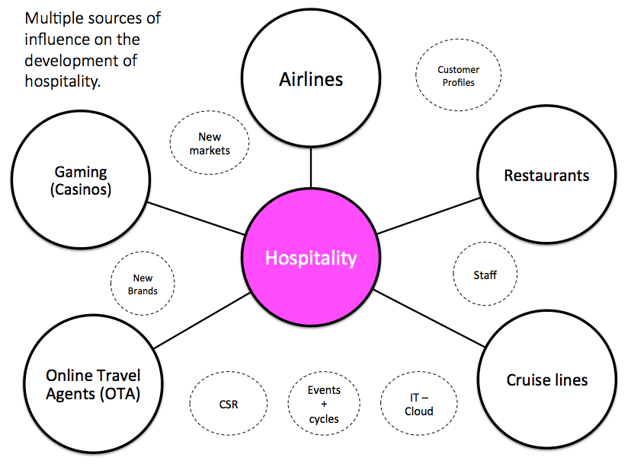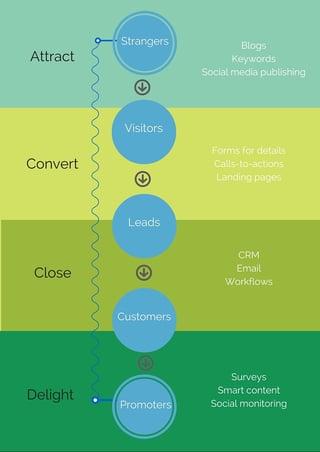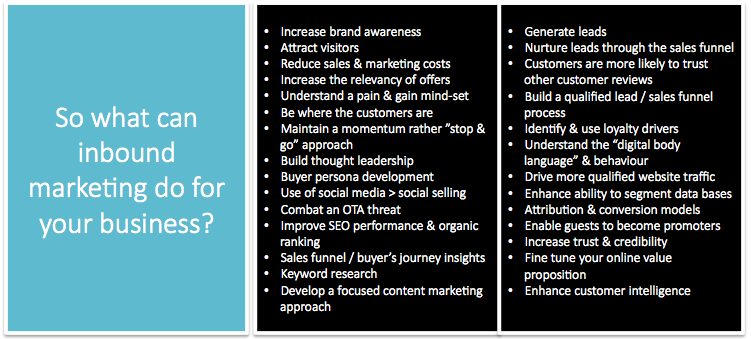I have spent over 25 years in the travel and tourism industry, and know that many of the players (businesses – small & large) are reluctant to adopt change and open up to new ways of doing things.
Change can mean new investments, never the right time with the ups & downs of a cyclical business, re-training staff, different skill sets, multi-tasking, inter-department frictions (sales vs. marketing vs. revenue management), a world of silos, heavy efforts of getting buy-in, opaque decision making processes, integrating with non-user friendly legacy systems, share holder pressures or too many stakeholders to please. Look hard enough and there is always a reason not to do something.
At the end of the day, hospitality is a people business.
You need people to stay overnight – if you run a hotel, plus engaged and customer focused staff to run it. But technology does already play a role in the success of some hotels, from the small independent up to the mega hotel brands globally planting flags as they expand their pipeline for new hotels – systems drive revenue, from the “back of house” (revenue management systems, EPOS, property management systems, booking engine, etc.) to those customer touch points that help build the personality of a brand and the customer experience; across the hotel website, guest loyalty programmes, social media interactions, email offers, etc.
As hotel companies focus on trying to end the year on a high and start planning for next year – they need to continue to focus on their most precious asset – their staff, but also work out how technology can be used to automate tasks, provide more usable insights and become a bigger part of their sales & marketing activities.
My advice is to take one step back and assess how you can use the same tools to drive revenue, but ask yourselves “…is chasing the customer working?” Would it be better to invest more time in getting to know the customer and their needs and build a content marketing approach that taps into those insights; where the customer feels you understand them, rather than sending out an offer because it suits your needs as a business?
Hospitality as a sector has many influences, particularly the airline business. If you think about it airlines were the first to bring in yield management, loyalty programmes, booking engines (GDS global distribution system), self-checkins, websites as a distribution channel, social media for brand building and customer service and more. So how are the other businesses that often influence hospitality developing their 2020 vision of how to manage their customers?

If you have been reading our blog lately, it’s hard to not have noticed that we love the inbound marketing methodology. We are already convinced of the benefits of inbound marketing but may be you are not yet.
Recently inbound marketing has been gaining ground as a way to reach customers, helped by a fragmented media landscape, a time poor and attention starved population and the power of the Internet and self-researching. And the pace of this change is getting faster and faster as the power shifts into the hands of the consumer. So how can we address this consumer desire to be the driver of the relationship, when it suits them?
What is Inbound Marketing?
In case you have forgotten what inbound marketing is all about, outbound marketing methods are a traditional form of “push marketing”, whereas inbound marketing is a fully focused “pull marketing” strategy. The idea is that you attract potential customers through valuable content. Once the relationship begins, inbound helps you nurture these leads through the buying process and concentrate on converting them into happy and loyal customers.
Content is the fuel that drives the inbound engine, and for it to work it must be:
- Aimed at solving a customers problems by educating them on how to address their pain
- Adjusted to your buyer’s profile by using a semi-fictional buyer’s persona to describe the ideal customer and their motivations, challenges and preferences for digital interactions
- Related to the stage in the buying process and sales funnel that they are at
- Content that is educational rather than selling – and preferably endorsed by a third party
Tracking and analysing the results of a comprehensive inbound programme allows you to deliver to leads the right content at the right time, and subsequently nurture those leads to close a sale. Inbound marketing is about Attracting, Converting, Closing, and Delighting; as articulated by HubSpot and their inbound marketing methodology.

Why inbound marketing?
Overall, buyers in general are more likely to trust information from their peers and other credible third parties more than anything that they hear directly from the sellers’ themselves. Most purchases we make now are prefaced by some kind of online research either to seek more information or genuine reviews and feedback from those that have made a purchase. Our desire as consumers to seek out this information has changed the buying process, and as we as consumers gain power the battle for our attention gets tougher, which is where inbound marketing comes in. To help your business be a part of the conversation rather than a disruption to it.
Inbound marketing as a tool can consolidate your sales & marketing activities, and when you create valuable content your target audience will be more open to take action to get to know your company and its solutions.
- Inbound marketing costs less per lead than outbound marketing
- Inbound marketing creates long-term results
- Inbound marketing produces better ROI compared to outbound marketing
- You provide your customers with value by offering relevant and timely content
What are some of the benefits Of Hotel Inbound Marketing?
We have put together a list on some of the areas that will benefit from an inbound focus:

Let us know if you are already using the inbound methodology and what you have learned.
To give you some insights into my own personal view of where hospitality as an industry is moving, have a look at a recent presentation I did “Hospitality 2020 vision”, find it here on slideshare.

